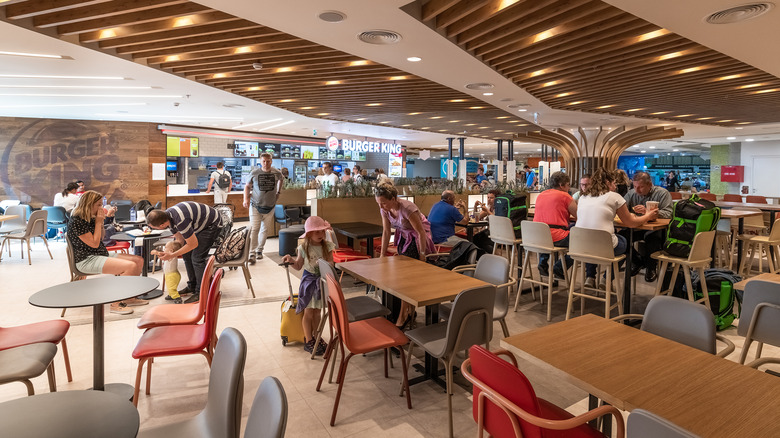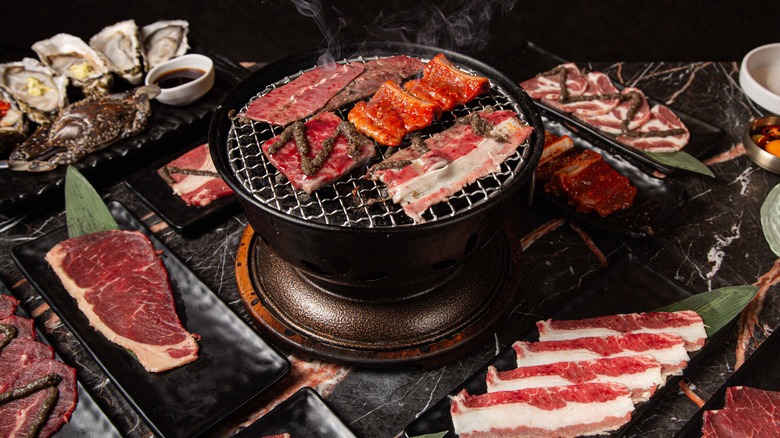Why You Should Never Eat At An Airport Barbecue Restaurant
Have you ever noticed that foods from your favorite restaurants tend to taste different at airport restaurants? According to City Monitor, the difference in quality is likely due to the strict security measures enforced by said airport. For one, food has to be screened before entering, which can have a significant impact on freshness. Some items are stripped from the menu due to storage issues, and certain ovens may be prohibited depending on the airport's rules.
Because of this, there are some foods that you should always steer clear of when dining before a flight. Per Money, airport salads have a greater chance of carrying harmful bacteria. Similarly, salty food should be avoided at airports because it can result in uncomfortable bloating (via Healthline). Additionally, some foods have been sitting on display for so long that they're likely to be stale. Barbecue is another food that should be avoided at an airport restaurant, according to pitmaster Rodney Scott. As an expert in the field, he shared with Insider the many things that you should look out for before choosing barbecue.
The food is likely not authentic
According to pitmaster Rodney Scott, the authenticity of barbecue is what makes it so good (via Insider). While observing a barbecue restaurant, you should always look for wood, pits, and a smoke smell to determine how the food is going to taste. "If I see a spot in the airport saying they're a barbecue joint, that would put a question mark with me. Because how much smoke do you see going around an airport?" he asked. To further investigate airport barbecue, you should consider where the food was initially prepared, though as mentioned earlier, its freshness can be called into question.
Meathead's Amazing Ribs explains that smoke is an important aspect of a good barbecue. Barbecuing can occur over a campfire, open pit, smokehouse, and indoor fireplace. The defining characteristics have updated with time, however; barbecue was once thought to only be prepared "low and slow" before some pitmasters started cranking up the heat and foil wrapping the meat. If you have any doubts that these methods are in place at an airport, you might want to stay clear of barbecue and opt for a different type of food.

